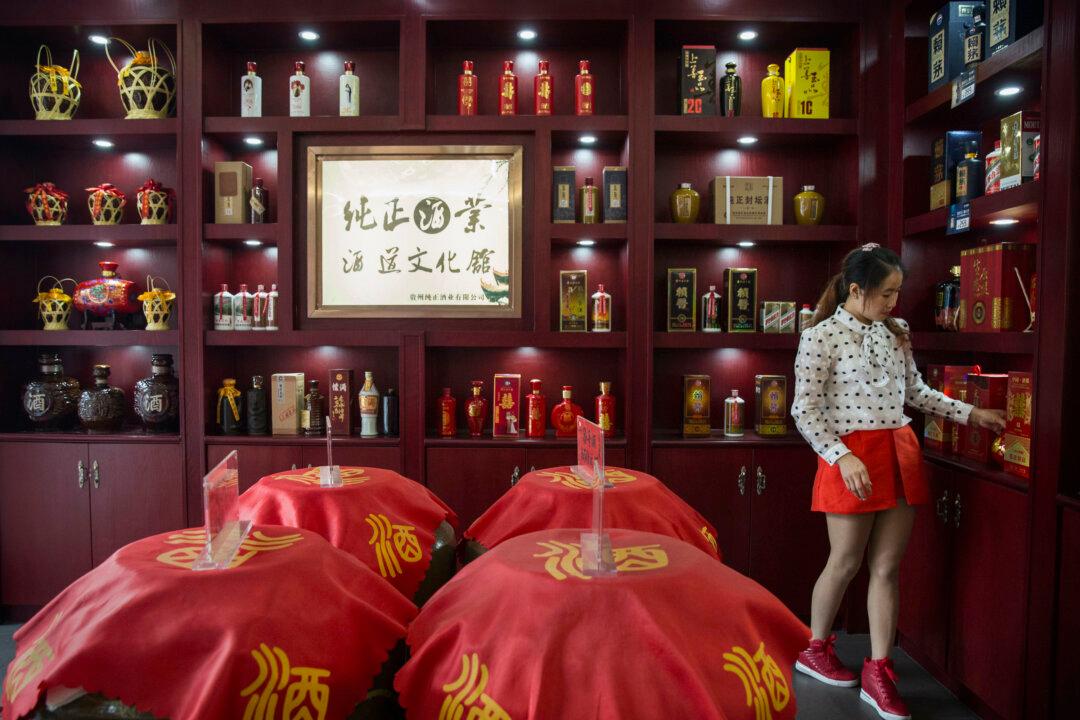The Chinese communist regime’s Ministry of Public Security announced on June 10 that it seized more than 300,000 bottles of unauthorized “special” and “exclusive” liquors in the past three months, worth 890 million yuan (about $123 million). Some critics say Beijing’s recent ban on exclusive products is a way for the ruling Chinese Communist Party (CCP) to make a profit.
The Ministry of Public Security said on June 10 that it had cracked down on the unauthorized production and sale of “special” and “exclusive” liquor supplies under the name of the CCP and the regime’s agencies and the military, and seized more than 318,000 bottles of “illegal“ liquors between March and early June that are worth 890 million yuan (about $123 million). The authorities also disbanded ”48 cross-regional criminal gangs” that were allegedly selling the counterfeit goods and arrested 417 suspects, according to People’s Daily, the CCP’s official mouthpiece.




